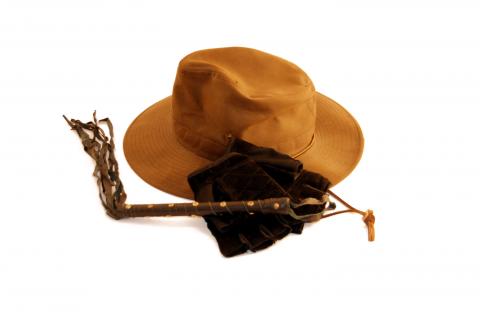Menú principal
Usted está aquí
Unit four: Adventure

Reading
-
Explore the African wilderness
-
Find hidden treasure
-
Have an unusual adventure
-
Find the guardian of the treasure
|
Gagool was the which doctor who had volunteered to be our guide … we were willing to take just about any risk to find the lost treasure |
|
we`d been hiking through mountainous terrain for eight hours |
|
Do not be in such a hurry... that mine is cursed |
|
King Solomon´s treasure chamber |
|
Boxes overflowed with jewels and pieces of gold |
|
I was so overcome with emotion I could barely speak |
Vocabulary & Grammar
EXPRESSIONS WITH TAKE
|
Take advice |
Take advantage |
Take care |
|
Take notice |
Take measures |
Take granted |
|
Take time |
Take responsibility |
Take a test |
Writing
|
|
|
|
Speaking
|
Handy |
Useful |
Essential |
|
Chop (despedazar) |
Direction |
Shelter (refugio) |
|
Matches |
Axe |
Knife |
|
Compass |
Unbearable to me |
On the island |
|
Go on a trip |
All of a sudden |
|
Glossary
mirage |ˈmɪrɑːʒ, mɪˈrɑːʒ|
noun
an optical illusion caused by atmospheric conditions, especially the appearance of a sheet of water in a desert or on a hot road caused by the refraction of light from the sky by heated air. the surface of the road ahead rippled in the heat mirages.
• an unrealistic hope or wish that cannot be achieved: the hope of sanctuary initially proved a mirage.
drudgery |ˈdrʌdʒəri|
noun [ mass noun ]
hard menial or dull work: domestic drudgery.
undergo |ʌndəˈgəʊ|
verb (undergoes, undergoing |-ˈgəʊz| ; pastunderwent |-ˈwɛnt| ; past participleundergone |-ˈgɒn| ) [ with obj. ]
experience or be subjected to (something, typically something unpleasant or arduous): he underwent a life-saving brain operation.
endurance |ɪnˈdjʊər(ə)ns, ɛn-, -ˈdʒ-, -ɔː|
noun [ mass noun ]
1 the ability to endure an unpleasant or difficult process or situation without giving way: she was close to the limit of her endurance.
shelter |ˈʃɛltə|
noun
1 a place giving temporary protection from bad weather or danger. huts like this are used as a shelter during the winter. an air-raid shelter.
• a place providing food and accommodation for the homeless. did they give you any breakfast at the shelter?
chamber |ˈtʃeɪmbə|
noun
1 a large room used for formal or public events: a council chamber.
fate |feɪt|
noun
1 [ mass noun ] the development of events outside a person's control, regarded as predetermined by a supernatural power: fate decided his course for him | his injury is a cruel twist of fate.
curse |kəːs|
noun
1 a solemn utterance intended to invoke a supernatural power to inflict harm or punishment on someone or something: she'd put a curse on him.
• [ usu. in sing. ] a cause of harm or misery: impatience is the curse of our day and age.
2 an offensive word or phrase used to express anger or annoyance: at every blow there was a curse.
3 (the curse) informal menstruation.
reluctant |rɪˈlʌkt(ə)nt|
adjective
unwilling and hesitant; disinclined: [ with infinitive ] : she seemed reluctant to answer.
hike |hʌɪk|
noun
1 a long walk or walking tour: a five-mile hike across rough terrain.
• informal a long distance: it's such a hike from Adelaide to Perth.
2 a sharp increase, especially in price or cost: fears of a hike in interest rates.
verb
1 [ no obj., with adverbial of direction ] walk for a long distance, especially across country: they hiked across the moors | (as nounhiking) : she enjoys hiking and climbing in her spare time.
seek |siːk|
verb (past and past participlesought |sɔːt| ) [ with obj. ]
attempt to find (something): they came here to seek shelter from biting winter winds.
due |djuː|
adjective
1 [ predic. ] expected at or planned for at a certain time: the baby's due in August | he is due back soon
balaclava |ˌbaləˈklɑːvə| (also balaclava helmet)
nounchiefly Brit.
a close-fitting garment covering the whole head and neck except for parts of the face, typically made of wool.
